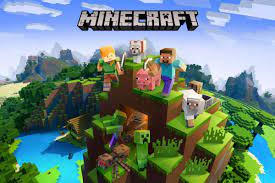Introduction
In the realm of technological innovation, virtual reality (VR) has rapidly transformed from a niche concept to a mainstream phenomenon. However, what was once thought to be confined to immersive gaming experiences has now evolved into something much more significant: the concept of meta universes. In this blog post, we’ll delve into the exciting world of meta universes and how they are shaping the future of virtual reality.
The Evolution of Virtual Reality
Virtual reality has come a long way since its early experiments. The initial applications were primarily limited to gaming and simulations, offering users a glimpse into alternate worlds. But with advancements in hardware, software, and connectivity, VR has expanded its horizons. Today, it encompasses fields such as education, training, healthcare, social interaction, and even professional collaboration.
What are Meta Universes?
Meta universes, also known as the metaverse, represent the convergence of virtual reality, augmented reality, and the internet. They are immersive digital environments where users can interact with each other and digital objects in real time. Imagine a shared online space that blurs the lines between the physical and digital worlds, enabling users to participate, socialize, work, and explore just as they would in the real world.
The Metaverse Ecosystem
The metaverse is not a single entity but an ecosystem of interconnected virtual worlds and platforms. Companies like Facebook (now Meta), Epic Games (creator of Fortnite), and Roblox are investing heavily in creating their own metaverse ecosystems. These ecosystems offer various virtual experiences, from social hangouts to virtual concerts, educational simulations, and beyond.
Potential Applications and Impacts
The implications of meta universes are vast and diverse. From revolutionizing remote work and education to creating new avenues for entertainment and self-expression, the metaverse has the potential to reshape society as we know it. For instance:
- Remote Collaboration: Imagine attending a virtual office space where colleagues from around the world collaborate on projects, just as if they were in the same room.
- Education and Training: The metaverse can provide immersive and interactive learning experiences, enabling students to explore historical events, scientific concepts, and artistic creations firsthand.
- Entertainment: Virtual concerts, film screenings, and sporting events can be experienced in ways that were previously unimaginable.
- Economy and Commerce: Virtual economies are emerging, where users can buy, sell, and trade digital assets, leading to new business models and job opportunities.
Challenges and Considerations
As with any technological advancement, the metaverse comes with its own set of challenges. Issues related to privacy, security, digital identity, and the potential for creating new forms of inequality must be carefully addressed.
The Path Forward
The development of the metaverse is still in its infancy, but the potential is undeniable. It requires collaboration between tech companies, creators, regulators, and users to ensure a responsible and inclusive evolution.
Conclusion
The rise of meta universes signals a profound shift in how we interact with technology and with each other. As virtual reality becomes a fundamental aspect of our lives, the metaverse holds the promise of creating a more interconnected, immersive, and innovative world. The journey ahead will undoubtedly be both exciting and challenging, but the prospects of what lies beyond the horizon are nothing short of awe-inspiring.




